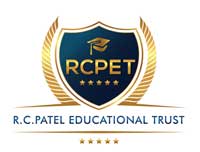Best Practice 01
Blood Group Detection and Hygiene Awareness Camp: A 24-Year Tradition
The Department of Microbiology and Biotechnology has been organizing the annual Blood Group Detection and Hygiene Awareness Camps every year on the occasion of Birthday of Sir Alexander Flemingfor the past 24 years. This initiative primarily comprises the students /folk in the rural and tribal areas, who often lack basic health knowledge. The department's students run "Plasmid Club," run onthe nominal registration fees. The club conducts various the blood group detection camps, cleanliness drives, and departmental prize distributions.
Camp Objectives and Significance
The camp's objectives include :
- To check blood groups which proves crucial during emergencies requiring rapid blood transfusions
- To provide students the practical experience in conducting blood group tests.
- To enhance students technical skills in using medical equipment and conducting accurate blood tests
- To impart knowledge for Disease Prevention Preventionthrough poster presentations to reduce communicable diseases.
- To encourage proper hygiene to improve overall health and reduce school absenteeism due to illness.
The Context :
The camp aims to address significant health issues prevalent in the rural and tribal regions of Shirpur Taluka, Maharashtra as the people suffer from low literacy rates and limited access to basic health facilities and public health challenges.
The camp features two main activities: blood group detection, conducted by M.Sc. students; and hygiene awareness poster presentations by B.Sc. students. The camp is held in Ashram schools, for tribal students. These students are unaware of essential health practices, making them vulnerable to preventable diseases.
The students knowledge of health, microorganism, diseases, blood group detection, prove helpful in organizing these camps.
In addition to blood group detection, the camp includes demonstrations of essential hygiene practices such as hand washing, bathing, and nail clipping. Students also create informative posters on communicable diseases, their prevention, and treatment. Street plays and door-to-door visits further enhance community engagement and awareness.
Best Practice 02
A Centre for Study, Research and Preservation of Ahirani: A Dialect in North Maharashtra
The College has initiated the dialect preserving practice under the A Centre for Study, Research and Preservation of Ahirani: A Dialect in North Maharashtra.
The Context of the Centre :
The Centre is set up with a view to study the dialects especially, Ahirani: A regional variant of Marathi, which is popularly spoken in the North Region of Maharashtra. The centre concentrates on the study and research of the dialects and at the same time to preserve the dialects.
Objectives :
- To make the students aware of the Ahirani dialect
- To preserve the diminishing words in Ahirani
- To initiate collaborative work to collect the Ahirani vocabulary
- To transform collection of vocabulary into a simple dictionary
- To encourage the students to use Ahirani and make the conscious of the linguistic and literary treasure of Ahirani.
Practice :
The center established an editorial board comprising the faculty members of Humanities. Initially, they planned for collecting the vocabulary of Ahirani. For the purpose the teachers and students visited the villages and interacted with the Ahirani speaking folk. Meanwhile, the centre organized workshops and discussion sessions at college level to collect the Ahirani words. As Ahirani is spoken in the rural area, the vocabulary related agriculture, culture, festivals, rituals, and traditions found the place in the dictionary. The vocabulary was noted down. The several meetings were held to sort the words and to find out the meanings of the words in Marathi.
